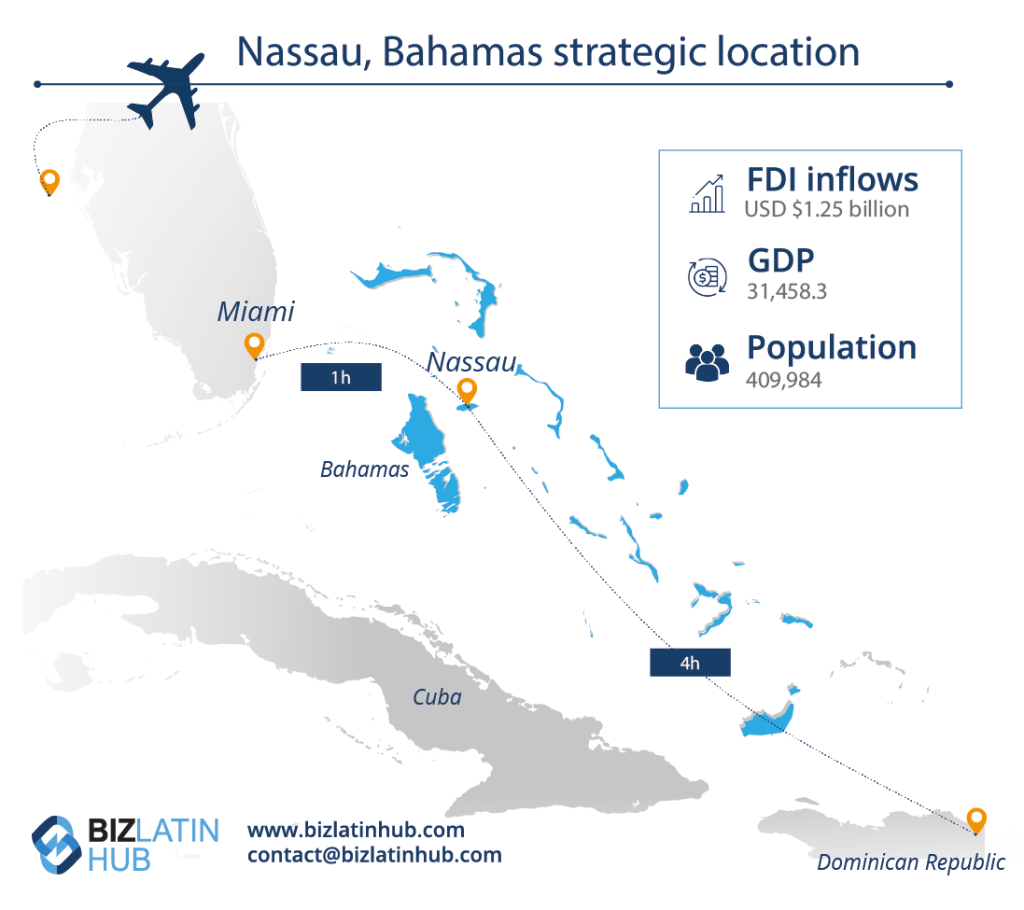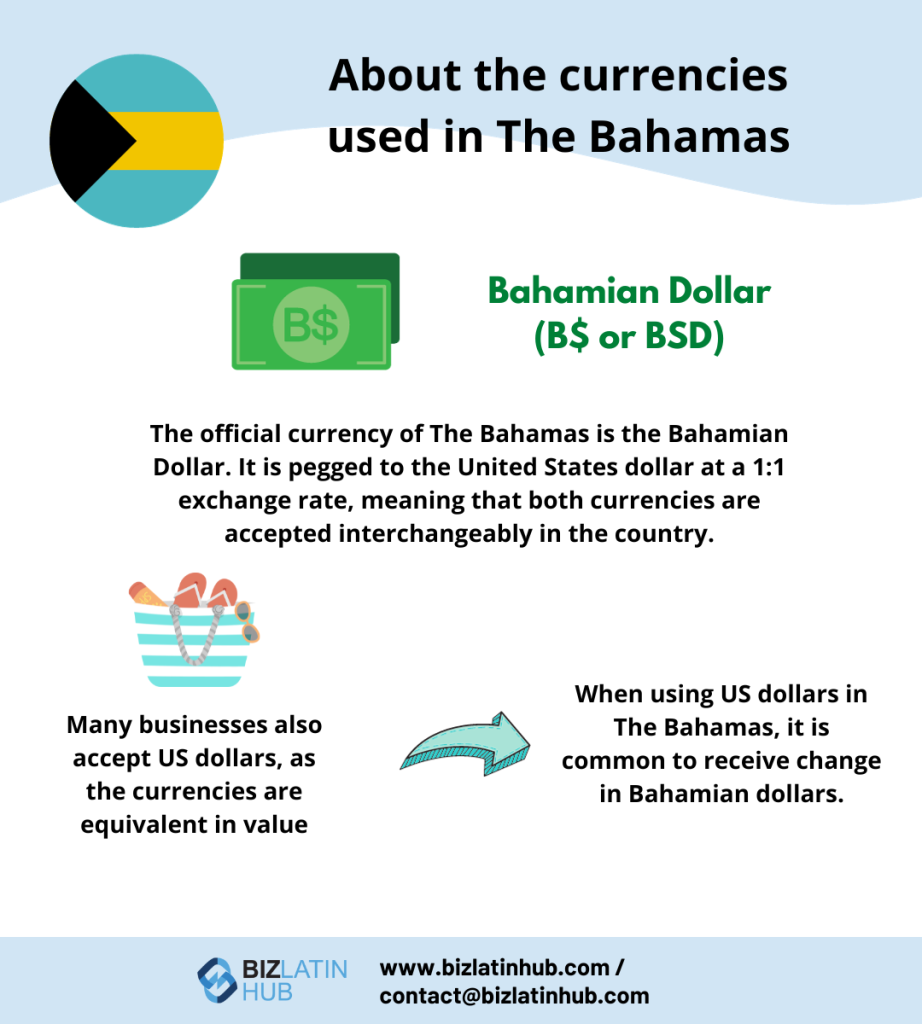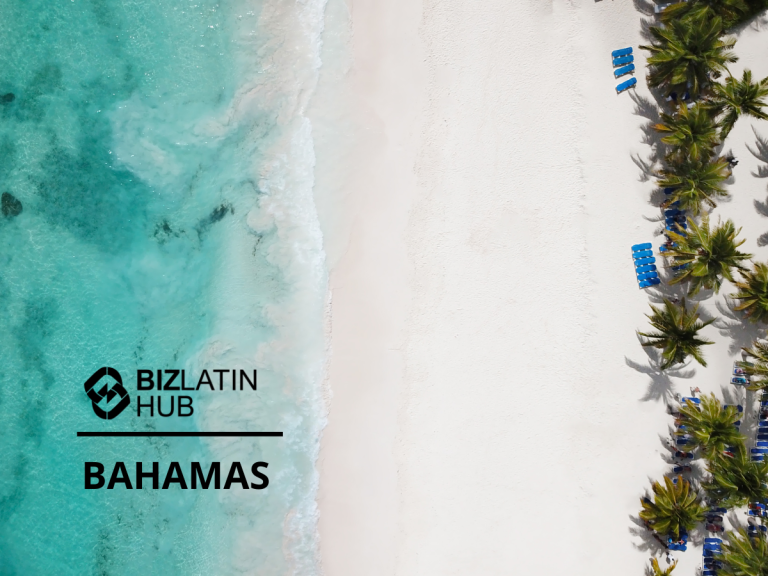Traveling to the Bahamas promises sun, sand, and unforgettable experiences. However, before you pack your swimsuit, understanding visa requirements is essential. Every traveler needs to navigate these requirements to ensure a smooth journey.
The Bahamas has specific entry criteria that vary depending on your nationality and the purpose of your visit. This guide will outline the types of visas, passport validity, and even electronic eVisa options available. Moreover, it will cover other critical aspects such as COVID-19 restrictions, local laws, and health considerations.
This comprehensive guide aims to equip you with all the necessary information needed to visit the Bahamas confidently. From understanding visa types to safety tips, every detail is crucial for your well-being. Let’s dive into the essentials of traveling to this tropical paradise.
What are the Entry Requirements for the Bahamas?
Visitors to The Bahamas must follow specific entry requirements.
- Immigration Card: Complete and sign an immigration card upon arrival. Officials will stamp this card, and you should keep it until leaving.
- Passport Requirements: Present a valid passport or travel document. It must show nationality and identity and remain valid for at least six months from the planned entry date.
- Visa Requirements:
- Filipino passport holders need an Electronic Entry Visa (EEV), regardless of the visit’s length.
- Vaccination: A yellow fever vaccination certificate is essential for travelers from areas with a yellow fever risk.
- Departure Tax: Pay a departure tax when leaving. Often, this is included in commercial travel fares.
These steps ensure a smooth entry into The Bahamas.

Types of Visas for the Bahamas
The Bahamas offers various visas depending on the purpose of your visit. Here is a brief overview:
- Tourist Visa:
- For short stays
- Valid for 90 days from issue
- Seaman’s Visa:
- For maritime workers
- Used for ship joining, transit, or onward travel
- Diplomatic/Official Visa:
- For diplomats and government officials
- Meant for official duties
- Multiple-Entry Visa:
- Allows multiple entries to the Bahamas
- Suits frequent travelers
Visitors from Haiti need a separate visa despite holding an F1 visa.
Important Requirements:
- Present the passport used for visa application
- Carry the Electronic Entry Visa (EEV) upon arrival
These visas cater to various needs, ensuring smooth entry and compliance with entry rules. For any visa, ensure your travel documents are in order before your journey.
Specifications for Passport Validity
When planning a trip to the Bahamas, it is important to ensure your passport meets specific validity requirements. Here are the key points:
- Validity Requirement: Your passport must have at least six months of validity remaining at the time you apply for a travel visa. This applies to passports from all countries.
- Canadian Passports: Regular Canadian passport holders must ensure their passport is valid for at least six months beyond the expected departure date from the Bahamas.
- U.S. Citizens: U.S. citizens need a valid U.S. passport and proof of anticipated departure from the Bahamas.
- X Gender Identifier: Passengers with an X gender identifier on their passport may face entry restrictions, as the Bahamas may not recognize this identifier.
Below is a quick reference table for passport validity:
| Passport Holder | Validity Requirement |
|---|---|
| All Countries | 6 months remaining before applying for a travel visa |
| Canadian Passport | 6 months beyond the expected departure date |
| U.S. Citizens | Validity and proof of departure required |
Always check the latest entry rules before you travel to the Bahamas.
Details on the Electronic eVisa
The Bahamas eVisa is convenient for travelers. You can apply online, and it is valid for short stays. This eVisa must be used within 90 days of issuance. The processing time is typically 7-10 business days, if you provide all required documents and no interview is needed.
All travelers must present their passport and Electronic Entry Visa (EEV) on arrival in The Bahamas. For those seeking multiple entries, a visa allows stays of three, six, or twelve months. To qualify, applicants must submit scanned copies of three previous successful Bahamas visas.
The application fee is $160 for both the single entry Visitors Visa and the Seamans Visa. Ensure you have this fee ready before beginning your application.
eVisa Quick Facts:
| Feature | Details |
|---|---|
| Validity | Short stays (within 90 days) |
| Entry Options | Multiple entries (3, 6, 12 months) |
| Processing Time | 7-10 business days |
| Required Documents | Passport, EEV |
| Application Fee | $160 (Single entry) |
Stay prepared by gathering all necessary items for a smooth entry.
Checking Visa Waiver Eligibility
When planning a trip to the Bahamas, check if you need a visa. Most non-US citizens must have a valid visa, unless their nationality qualifies for visa-free entry. For example, citizens from American Samoa, Ecuador, Jamaica, Qatar, and Spain do not need a visa.
Here’s a simple guide to check visa waiver eligibility:
Countries with Visa Waiver:
- American Samoa
- Ecuador
- Jamaica
- Qatar
- Spain
If your country is not on the list, like Nigeria, you must apply for a Bahamas eVisa. Even cruise ship travelers need this.
Important Requirements:
- Valid Passport: Ensure it is current.
- Police Certificate: Required if you are 14 years or older.
- Activity-Specific Visa: Different rules apply when working in the Bahamas.
Understanding these steps can make your Bahamas travel smoother. Use the table and list to determine your visa requirement. This ensures a problem-free entry and helps you prepare necessary documents.
Safety and Security in the Bahamas
Travelers must exercise caution in The Bahamas due to high crime rates, especially in Nassau and Freeport. Violent crimes, such as robberies and burglaries, often occur in non-tourist areas after dark. Gang activity is common in certain areas, increasing the risks. Petty crimes like pickpocketing and bag snatching can happen in tourist zones, especially near cruise ship terminals and popular resorts. Stay alert by avoiding isolated places, particularly at night, to keep belongings safe.
Understanding Crime Levels
Crime is most prevalent in New Providence (Nassau) and Grand Bahama (Freeport) islands. Specific areas, like the Over the Hill region in Nassau, have frequent gang-related violence. Violent crimes, including armed robberies, burglaries, and sexual assaults, are concerns for tourists and locals, especially at night in non-tourist spots. Petty crimes like pickpocketing increase during holidays and festivals. Vacation rentals have seen more break-ins and thefts, emphasizing the need for traveler vigilance.

Women’s Safety Tips
Women visiting The Bahamas should stay cautious. Avoid accepting food or drinks from strangers, as these might be drugged before an assault. Travel in groups and avoid walking alone after dark or visiting unattended beaches. Criminals often target women in areas like hotels, casinos, and cruise ships. Ensure drinks are purchased in sealed containers to avoid tampering, which helps protect against potential threats.
Precautions Against Spiked Items
Be cautious with food, drinks, or items offered by new acquaintances, as they might contain drugs leading to assault or robbery. Never leave your food or drink unattended or in stranger’s care. Where possible, order beverages in sealed bottles or cans to minimize tampering risks. Spiking incidents often occur in crowded areas like beaches, casinos, and nightclubs. Criminals might target items such as food, gum, and cigarettes, potentially leading to sexual assault or robbery.
| Safety Tips | Areas to Avoid | High-Risk Items |
|---|---|---|
| Stay in groups | Non-tourist areas after dark | Drinks in plastic cups |
| Secure belongings | Over the Hill region | Unattended beverages |
| Avoid isolated spots | Nassau and Freeport | Food from strangers |
Travelers should always remain aware of their surroundings to ensure a safe and enjoyable visit to The Bahamas.
Local Laws and Regulations
Travelers in The Bahamas must obey local laws. All are subject to Bahamian law without exception. Here are key rules to know:
- Firearms: Declare firearms and ammunition with Customs. Only registered shotguns and handguns are allowed on board.
- Drug Offenses: Penalties are severe. Drug crimes lead to hefty fines and long jail terms.
- Fishing Regulations: Long-line fishing is illegal. Violating fishing laws results in severe penalties.
- Arrest Procedures:
- If arrested, request officials to notify your embassy.
- There is no guarantee of a public defender in lower courts.
Remember, foreign nationals get no special treatment under Bahamian law. Adhering to these rules ensures a safer visit.
| Activity | Regulations and Penalties |
|---|---|
| Firearms | Declare with Customs; only certain guns allowed. |
| Drug Offenses | Heavy fines and long jail terms. |
| Fishing Restrictions | No long-line fishing; harsh penalties apply. |
Understanding these rules can enhance your travel experience in The Bahamas.
Health Considerations for Travelers
Travelers to The Bahamas should prioritize their health safety. Ensure your routine vaccinations are current. Pack your prescribed medications legally. Consume bottled water to avoid health risks. Limit intake of uncooked foods. If traveling from a Yellow Fever-risk country, present a vaccination certificate. Protect yourself from the sun using high SPF sunscreen. Staying hydrated and seeking shade during peak hours is crucial.
Recommended Vaccinations
For most travelers, The Bahamas do not require special vaccinations. However, if you come from a Yellow Fever-risk country, show a vaccination certificate. This rule also applies if you’ve had a 12-hour layover in such a country. A Hepatitis A vaccination is advised due to food and water risks. Those exposed to blood or needing medical care should get a Hepatitis B shot. Stay updated on routine shots like MMR, diphtheria-tetanus-pertussis, and flu shots.
Awareness of Common Diseases
The Bahamas reports a high rate of HIV/AIDS. Take necessary precautions if engaging in high-risk activities. The Zika virus is present, posing risks, especially to pregnant women. Consult your doctor before traveling. Other insect-borne diseases like dengue and chikungunya are common. Use insect repellent and wear protective clothing. Ensure your accommodation is insect-proof. If symptoms like fever or severe headache occur, seek medical advice. Hepatitis A and B vaccinations are recommended for additional protection.
| Vaccination Recommendations | Details |
|---|---|
| Yellow Fever | Required if from/exposed to risk areas. |
| Hepatitis A | Advisable due to food and water risks. |
| Hepatitis B | For those at risk from blood or seeking medical treatment. |
| Routine Vaccinations (MMR, etc.) | Keep up to date before traveling. |
Travelers should adopt these precautions for a safe and healthy trip to The Bahamas.
Importance of Travel Insurance
Travel insurance is crucial for any trip abroad. It covers medical costs, including evacuation, which might not be paid by your government. Without insurance, you may have to pay thousands in medical bills. Before you travel, check what your policy covers, especially activities and medical care.
Here are key reasons to get travel insurance:
- Covers Medical Costs: Ensures overseas medical treatment is handled.
- Medical Evacuation: Provides transport if you need to return home for treatment.
- Legal Costs: Assists with legal fees abroad.
- Repatriation: Covers costs if you need to return home suddenly.
Travel insurance should protect you for your entire trip. This guarantees coverage against various risks like illness or accidents. The Department strongly advises securing insurance for medical repatriation and other emergencies.
| Coverage | Description |
|---|---|
| Medical Costs | Pays for hospital and doctor fees abroad. |
| Evacuation | Covers transport for serious conditions. |
| Legal Costs | Helps with legal issues that may arise. |
In conclusion, securing comprehensive travel insurance is essential for a safe and stress-free journey.
Public Transportation Options
Public Transportation Options in The Bahamas
Public transportation in The Bahamas includes jitneys and taxis. Jitneys are minibuses that offer frequent stops, including at undesignated locations. These serve as a primary mode of transport across the islands. However, their unpredictable stops require passengers to stay alert and ready.
Taxis provide another option, with fares based on zones. It is important to agree on the fare with the driver before starting the journey. In Nassau, extra charges may apply for additional passengers or luggage, so clear communication about the fare is crucial.
Below is a simple guide to The Bahamas’ public transport:
| Transport Type | Key Features |
|---|---|
| Jitney | Frequent stops, casual routes |
| Taxi | Zone fares, negotiate fare, possible surcharges |
Both transport modes cater to locals and tourists, making travel across the islands easier. Be mindful of potential surcharges and maintain clear communication with drivers to ensure a smooth experience.
Tips for Traveling with Minors
When traveling to The Bahamas with minors, careful planning is essential. A valid passport is required for all family members, including young children. Each minor must have a visa, and the parent or guardian is responsible for obtaining this visa.
If only one parent is traveling with a child, a notarized letter of consent from the non-traveling parent may be necessary. When minors travel with adults other than their parents, a notarized letter from the child’s guardians is needed, which permits travel and medical attention if required.
Here’s a quick checklist for traveling with minors to The Bahamas:
- Valid passport for each minor
- Visa for each child
- Notarized consent letter if needed
Importantly, minors are exempt from presenting a negative COVID-19 test before departure, regardless of their vaccination status. Always keep emergency contact information accessible, and ensure consular offices details are handy for additional support.
Emergency Contacts and Assistance
In the Bahamas, emergency services can be reached by dialing 919 for general emergencies. For police, fire brigade, or ambulance services, dial 911 or 919. The Consulate of Canada to the Bahamas is located in Nassau. It provides limited consular services.
Emergency Contacts:
- General Emergencies: 919
- Police, Fire, Ambulance: 911/919
If you need emergency consular help, contact the Consulate of Canada in Nassau. Alternatively, you can reach out to the High Commission of Canada in Jamaica or the Emergency Watch and Response Centre in Ottawa.
Medical Emergencies:
Medical facilities may be limited on smaller islands. It’s important to have a plan to reach adequate medical care. If you bring medication to the Bahamas, declare it at customs. Keep medicines in original packaging and carry a doctor’s note or prescription.
For further assistance, travelers can access consular services in Nassau. Always ensure you have the necessary documentation and contact numbers easily accessible.
Required Documentation for Entry
Travelers to The Bahamas must prepare proper documentation to ensure a smooth entry.
- Valid Passport or Travel Document: All visitors must have a valid, unexpired passport or an acceptable travel document. This applies to adults and children alike.
- Immigration Card: You must complete and sign an immigration card upon entry. Immigration officials will stamp it at the point of entry.
- Proof of Funds and Ticket: Be ready to show proof of sufficient funds to cover your stay. You may also need to present a return or onward ticket.
- Private Vessel Entry: If arriving by private vessel, have specific documents ready. Obtain a cruising permit online or at the Bahamas Customs Department.
Documentation Checklist
- Valid passport
- Completed immigration card
- Proof of funds
- Return/onward ticket
- Cruising permit (for private vessels)
By ensuring all necessary documents are in order, travelers can look forward to a pleasant visit to The Bahamas.
Exit Requirements from the Bahamas
When leaving The Bahamas, travelers must complete specific exit requirements. First, ensure you have your immigration card, stamped upon entry. Present this card at the exit point.
Customs officials might request proof of sufficient funds for your stay and a return or onward ticket. Be prepared to show these documents if asked.
Travelers must pay a departure tax. This fee is typically included in commercial travel fares. Verify your ticket to ensure this tax is covered.
Note that it is illegal to take more than BSD10,000 in currency out of the country. Ensure you comply to avoid penalties.
For those traveling by private vessel, additional documentation is essential. You will need a cruising permit to enter and exit The Bahamas. Ensure you have all necessary documents before your journey.
Exit Checklist:
- Immigration card stamped
- Proof of sufficient funds
- Return or onward ticket
- Departure tax payment
- Currency limit: BSD10,000 maximum
- Cruising permit (for private vessels)
Following these guidelines will smooth your departure process from The Bahamas.
Frequently Asked Questions
How long can I stay in the Bahamas?
Visitors can stay in The Bahamas for up to 30 days without a visa. If needed, extensions are available, allowing a stay of up to eight months. Canadian citizens and permanent residents can visit for 30 days without a visa; a visa is necessary for stays longer than eight months. Latin American citizens do not need a visa for stays under three months, provided they have a valid passport for the entire duration. For U.S. travelers with an ESTA, time spent in The Bahamas counts towards the 90-day limit of their ESTA.
What documents do I need to enter the Bahamas?
Upon arrival, all visitors must complete and sign an immigration card, which officials will stamp at entry. Those from yellow fever risk countries must show a yellow fever vaccination certificate if they have transited for over 12 hours. Customs may ask for proof of a return or onward ticket and funds for your stay. If arriving by private vessel, certain documents, including a cruising permit, are necessary. Travelers must also pay a departure tax, often covered in commercial travel fares.
Are there restrictions on bringing items into the Bahamas?
Travelers should declare all items that might be prohibited or taxed. Firearms and ammunition are illegal unless you have a Bahamian gun license. Report any firearms to Customs at your entry point, following strict rules. Do not accept packages from unknown sources to avoid legal problems. Customs may also check proof of funds and return tickets.
Here is a quick checklist for travelers:
- Valid passport
- Immigration card (completed and stamped)
- Yellow fever vaccination certificate (if applicable)
- Return/onward ticket and proof of funds
- Cruising permit (private vessels)
- Declare prohibited goods or firearms
- Pay the departure tax
How long can I stay in the Bahamas?
You can usually stay in the Bahamas for up to 30 days without a visa. Extensions can allow a stay of up to eight months. Here is a breakdown based on different citizenships:
- Citizens of Canada:
- Up to 30 days without a visa.
- Visa required for stays over eight months.
- Permanent Residents of Canada:
- 30 days without a visa with documentation.
- Latin American Citizens:
- No visa needed for stays under three months.
- Must have a valid passport for the entire stay.
- Travelers from the USA:
- Time spent counts towards the 90 days allowed by ESTA.
Make sure to have all required travel documents, including a valid passport. Different rules may apply if you hold an official or national passport. Always check visa requirements before traveling.
| Citizenship | No Visa Stay Duration | Extensions Available |
|---|---|---|
| Canadian Citizens | 30 days | Up to 8 months |
| Canadian Permanent Residents | 30 days | N/A |
| Latin American Citizens | 3 months | N/A |
| USA Travelers (with ESTA) | Counts towards 90 days | N/A |
Remember to consider entry restrictions and required application forms if planning a longer visit.



